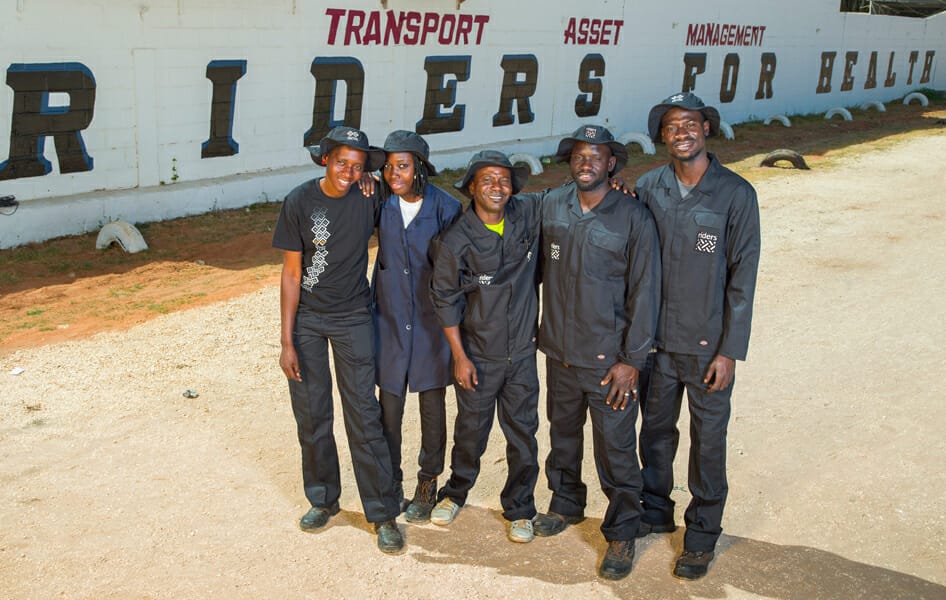An essential but tedious task for most frontline health workers (FHWs), is the collection of field data. Most frontline health organisations rely on paper based record-keeping because it is a trusted, well understood and low-cost medium. But there are huge disadvantages to this, with organisations finding their paper records of very limited use for making agile system improvements.

Sumowuoi Flomo, Riders for Health sample courier, collecting samples and filling in paperwork at James N Davies Hospital, Paynesville, Monrovia, Liberia.
This is something Riders know well. We provide end-to-end transport services that deliver essential health services to nearly 47 million people in underserved communities through partnerships with Ministries of Health (MOH) in five African countries. One of our main services is critical medical sample transport for infectious disease diagnosis, focusing on HIV, tuberculosis and recently, COVID-19.
To maintain quality and integrity of samples during collection, transportation, storage, and analysis, our couriers capture details in handwritten logbooks generating 1500+ paper-based records daily. This laborious process severely limits the volume and frequency of visits couriers can make to health facilities. It also causes degradation of samples and delays in diagnosis and treatment. In addition, delays in aggregation and digitisation of data (currently between 30 and 60 days) impede Riders’ ability to make information-driven decisions.

Riders sample couriers produce over 1500 files a day
We have partnered with DataKind as part of our digital transformation programme to explore new and powerful ways to produce digital data from handwritten forms in an aim to create greater efficiencies in their healthcare delivery service and allow them to reach patients faster and more efficiently.
DataKind estimate that only about 20% of the world’s community health worker (CHWs) data is getting digitized. This is because the time and cost involved in aggregating paper data and digitizing it back at the office.
Through DataKind’s design process, which included working directly with the Abuja-based Riders team, they have designed a prototype tool for the reality of data coverage in low and middle-income countries (LMICs).
Their volunteers used computer vision techniques, existing character recognition APIs (tools allowing access to features or data from another service), and machine learning to develop a low-cost, open-access, open-source tool that automates the digitisation of common paper based Ministry of Health sample transport forms. We have focused on forms in common use such as those designed for health campaigns (e.g. tuberculosis, vaccinations) and for sample transport (e.g. biohazardous or health sample collection). Our near real-time process uses optical character recognition (OCR) and intelligent character recognition (ICR) technologies that have been widely inaccessible to frontline health organisations.
The prototype has proven it could already speed-up the data digitisation process to under a day. This means our couriers could spend less time on data entry and more time transporting patient samples to labs, meaning more patients could be diagnosed earlier and begin treatments sooner.
DataKind is working with us and other partners to improve the tool’s performance and make it as useful and user-friendly as possible. They are developing a web interface so the tool can be accessed easily from anywhere in the world, and making it mobile accessible. The final aim is to make it available to many organisations by sharing it as a Global Good.
We are delighted to be pioneers in the use of this technology for frontline healthcare and excited to see how technology can improve and save lives worldwide.

